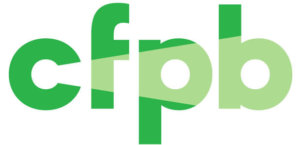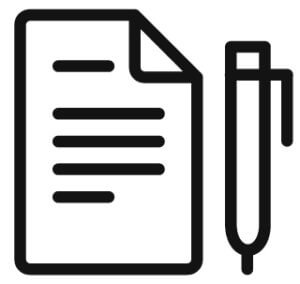NASCUS Summary: Compliance Bulletin on the Electronic Fund Transfer Act
 CFPB Bulletin 2022-02: Compliance Bulletin on the Electronic Fund Transfer Act’s Compulsory Use Prohibition and Government Benefit Accounts
CFPB Bulletin 2022-02: Compliance Bulletin on the Electronic Fund Transfer Act’s Compulsory Use Prohibition and Government Benefit Accounts
Section 913 of the Electronic Fund Transfer Act (EFTA) provides, among other things, that no person may require a consumer to establish an account for receipt of electronic fund transfers with a particular financial institution as a condition of receipt of a government benefit. The Consumer Financial Protection Bureau (CFPB) is issuing this Compliance Bulletin to reiterate that this prohibition in EFTA applies to government benefit accounts.
The bulletin became effective on February 24, 2022, and the Federal Register notification be found here.
As a benefit to our members, NASCUS has provided a summary of that bulletin below.
 Summary
Summary
Section 913 of the EFTA provides, among other things, that no person may require a consumer to establish an account for receipt of electronic fund transfers (EFTs) with a particular financial institution as a condition of employment or receipt of a government benefit. The provision is implemented in Section 1005.10(e)(2) of Regulation E. The Bureau is reissuing this compliance bulletin to reiterate the compulsory use prohibition in the EFTA applies to government benefit accounts. Congress amended the EFTA to exempt “needs-tested” state and local electronic benefit transfer (EBT) programs. However, all account used to distribute benefits for federally administered programs (including Federal needs-tested programs) as well as non-needs tested State and local government benefit programs remained covered by Regulation E. In October 2016, the Prepaid Accounts rule extended Regulation E coverage to prepaid accounts.
Compulsory Provision Prohibition
The compulsory provision of the EFTA provides that no person may require a consumer to establish an account for receipt of EFT with a particular financial institution as a condition of receipt of a government benefit. This provision ensures that consumers receiving the government benefits have a choice with respect to how they receive their funds. As noted earlier, this provision applies to “government benefit accounts” but not does not include a government benefit account used to distribute needs-tested benefits in a program established under State or local law or administered by a state or local agency. The Bureau provided examples of needs-tested benefits that are not subject to the compulsory use provisions, such as those used to distribute TANF (Temporary Assistance for Needy Families), WIC (Special Supplemental Nutrition Program for Women, Infants and Children) and SNAP (Supplemental Nutrition Assistance Program) funds.
Examples of government benefit accounts administered by State or local agencies that are subject to the compulsory use prohibition because they are not needs-tested include accounts used to distribute unemployment insurance, child support, certain prison and jail “gate money” benefits, and pension plan payments. In addition, all accounts used to distribute funds under federally administered benefit programs are “government benefit accounts” subject to the compulsory use prohibition; for example, accounts used to distribute Social Security, Social Security Disability Insurance and Supplemental Security Income (SSI) payments; or Federal tax credits like the Earned Income Tax Credit (EITC) or the Child Tax Credit (CTC) are subject to the compulsory use prohibition.
Additional Protections under Regulation E for Government Benefit Accounts
Government benefit accounts are entitled to the protections of the EFTA generally and Regulation E’s provisions applicable to prepaid accounts specifically. Those protections are:
- Disclosures – Under Regulation E, consumers are entitled to three types of disclosures for government benefit accounts – pre-acquisition disclosures, disclosures on the access device or entry point and initial disclosures.
- Change in Terms Notices – Change in terms notices are required when a term or condition required to be disclosed in the initial disclosures, changes or the change results in an increased fee, increased liability for the consumer, fewer types of available EFTs, or stricter limitations on the frequency of dollar amount of EFTs
- Access to Account History – Government agencies must either provide a periodic statement or must have available to the consumers (i) the consumer’s account balance, by telephone; (ii) an electronic history such as through a website of account transactions covering at least 12 months preceding the cate the consumer electronically accesses the account; (iii) written account transaction histories provided upon request must cover at lest the 24 months preceding the sate on which the government agency receives the consumer’s request for the account transaction history.
Limited Liability for Unauthorized Transfers and Error Resolution Rights – Regulation E’s limited liability protections and error resolution rights fully apply to government benefit accounts.